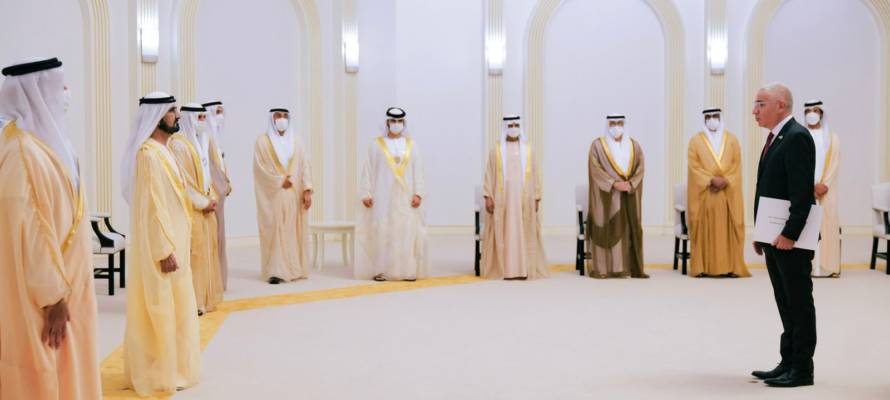Israel and the United Arab Emirates finalized details for a massive free trade agreement worth hundreds of millions of dollars that builds on the Mideast allies’ 2020 peace accords.
By United with Israel Staff
The historic Abraham Accords, which Israel signed in 2020 with a group of Arab allies in the Middle East, continue to bear fruit for signatories.
On Friday, Israel and the United Arab Emirates concluded negotiations related to a new free trade agreement that will facilitate economic relations between the Mideast allies, which covers up to $700 million in bilateral trade according to comments from UAE’s Minister of the Economy Abdulla Bin Touq Al Marri.
Under the agreement, 95% of all traded products are covered, leading the way to customs-free import-export of food, agricultural products, medical equipment, medicine, and cosmetics, said Israel’s Economy Ministry according to a Reuters report.
“A separate UAE statement said the agreement would substantially reduce or remove tariffs on a wide range of goods, enhance market access for services and promote investment flows,” Reuters reported, adding, “It would also create mechanisms for small-and-medium enterprises’ expansion.”
“This milestone deal will build on the historic Abraham Accords and cement one of the world’s most important and promising emerging trading relationships,” tweeted United Arab Emirates Minister of State for Foreign Trade Thani Al Zeyoudi.
In addition to economic benefits, the Abraham Accords have also fostered increased defense cooperation between Israel and its Arab allies. In January 2021, then president Donald Trump transferred Israel from the US European Command (EUCOM) to the Central Command (CENTCOM). The move has facilitated Israeli and Arab collaboration against Iran.
Some of Israel’s biggest threats, including Iran and its terror proxies in Syria, Lebanon, and Iraq, fall within in CENTCOM’s purview.
Closer cooperation between Israel and its Abraham Accords allies has resulted in naval drills and air force exercises with the U.S., Israel, its Arab partners in the Gulf.
